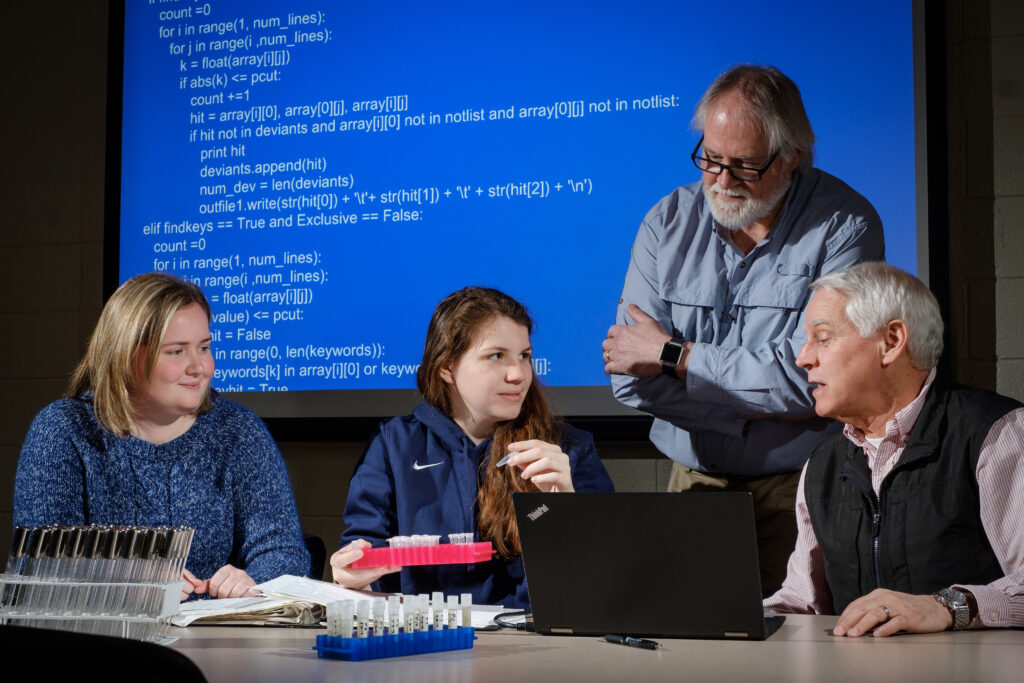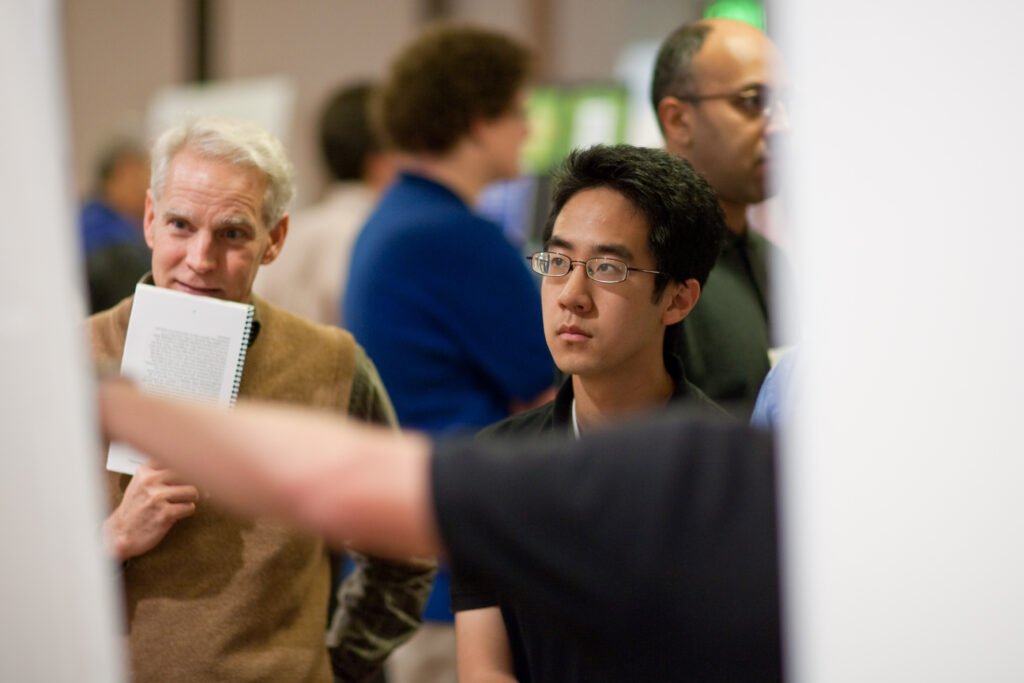Teacher-Scholar Legacies: Jim Curran

By Erik Johnson, Chair of Biology

Dr. Jim Curran is retiring after a career spanning over three decades at Wake Forest. Jim was a former chair of the Biology department and was a leader in the development of the Environmental Studies program. Dr. Curran was trained as a classical molecular biologist and his research, largely supported by the National Institutes of Health, focused on identifying mechanisms of the cell machinery responsible for synthesizing proteins. Later in his career, he altered his research focus and analyzed microbial communities present in environmental pollutant sites.
In the teacher-scholar tradition, he blended his research with teaching and a notable example was his multiple trips to Casa Artom with students who assessed the water quality of the Grand Canal.
Dr. Curran was an innovative teacher and taught a diversity of subjects, from Genetics to Microbiology. When he first took on the job of co-teaching our non-majors’ biology course, he chose not to make it a mini-version of a traditional didactic course. Instead, he was among the first faculty in our department to adopt a flipped course model. Dr. Curran’s willingness to experiment with teaching methods other than traditional didactic lectures in that course opened the door for other faculty to experiment with alternative class formats. Today, a majority of our faculty teach using one or more non-lecture strategies, which has greatly benefited our evermore diverse student body.
As chair, Jim was a strong advocate for the department, and he helped make our graduate program stronger, developed curriculum goals for our majors, and lobbied for infrastructural improvements to Winston Hall.

